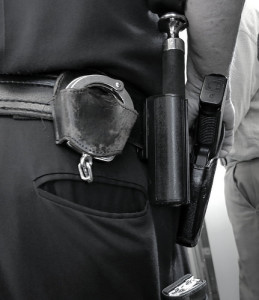You have no doubt heard the story of a Kentucky woman who answered a knock at her door only to be assaulted by a stranger who began strangling her with a bra. The woman fended off the attacker after knocking her on the head with a ceramic chicken. The suspect pled not guilty and claimed she was under the influence of narcotics. But is being under the influence a valid criminal defense to the commission of any Illinois crime?
Intoxicated or drugged condition defense
Under Illinois law a person who commits a crime while intoxicated or otherwise under the influence of drugs or alcohol is still responsible for those crimes, unless the intoxication is involuntary and deprives him of substantial capacity to either:
- Appreciate the criminality of the conduct; or
- Conform his conduct to the law.
The intoxication defense is an affirmative defense. This means that the defendant, and not the prosecution, has the burden of proving that his intoxication was involuntary, and that as a result of this involuntary intoxication, he could neither understand nor control his conduct.
Under this standard, it is clear that knowingly drinking alcohol to the point of intoxication, or getting high on marijuana, cocaine or another drug, would fail the voluntary portion of this defense. But what situations would fall within the defense?
If the defendant was tricked or otherwise coerced into taking a substance that caused him to become intoxicated. Someone who ingested brownies or another food product made with marijuana, had a drug slipped in their drink, or in some other way took an intoxicating substance without knowing it was laced with drugs cannot be said to have become voluntarily intoxicated.
Another scenario would be when prescription or nonprescription medication affected the defendant in a way that was unexpected. Whether over the counter or prescribed by a prescription, drugs come with warnings of side effects. If drowsiness was a side effect, and the defendant ran over someone with his car after taking the drug and falling asleep at the wheel, he can’t be said to be involuntarily intoxicated. It was not his intent to become impaired, but he knowingly took the drug, with full knowledge of the potential side effects, and got behind the wheel anyway. The same could be said about a defendant who took a drug knowing that it had caused a reaction in the past. For example, maybe the defendant took medication that one day caused him to have a seizure. If he was in an accident at that time, he could successfully invoke the intoxication defense, because he had no idea the drug would cause that reaction. But if he took the drug again, knowing how his body may sometimes react, his intoxication would not be considered involuntary.
The above scenario would be different, however, if the defendant did not know the drug would affect him in the way that it did. For example, if the doctor failed to inform the defendant of possible side effects prior to prescribing it, or if the prescribed medication caused an adverse reaction with another medication the defendant was taking, and the physician failed to warn the defendant ahead of time of the consequences of the drug interaction. Another instance would be where the defendant had a previously undiagnosed medical condition that made him react to the drug in ways that could not have been anticipated when taken. If the defendant mistakenly took a powerful narcotic, when he thought he was taking something as ordinary as aspirin, could also be enough to invoke the intoxication defense.
Chicago Criminal Defense Attorney
When you have been arrested and charged with a crime, having an experienced Chicago criminal defense attorney in your corner can be the difference between years spent behind bars and walking away with an acquittal or reduction in charges. David L. Freidberg has almost 20 years’ experience handling felony and misdemeanor criminal cases. Let him put that experience to work for you. Someone is available to take your call 24/7. Contact us today at 312-560-7100.
 Chicago Criminal Lawyer Blog
Chicago Criminal Lawyer Blog



